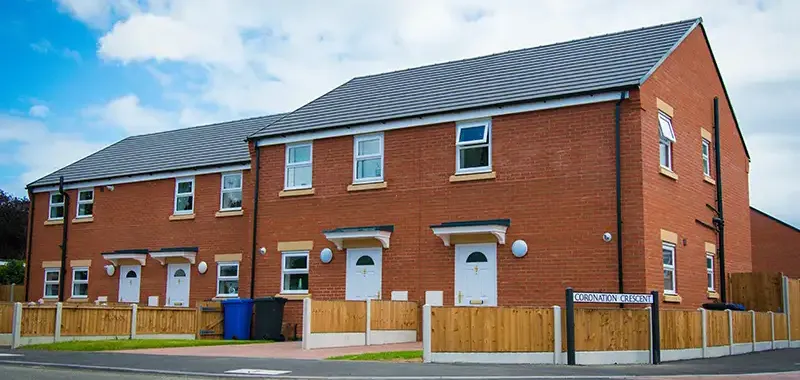This Update includes the following

Submission to the Autumn Budget and Spending Review
CWAG has linked up with ARCH and the NFA on a joint submission covering both the Autumn Budget and the Spending Review.
The submission sets out the scale of the current funding crisis facing many council Housing Revenue Accounts (HRAs) and outlines its origins including the abandonment of both rent convergence and the formula for annual rent increases agreed within the 2012 self-financing settlement. The requirement to reduce rents by 1% per year between 2016 and 2020 significantly undermined capacity within HRAs reducing council income by an estimated £2.4 billion (amounting to an estimated loss of £42 billion from business plans by 2042). In addition, the further cap on rent rises in 2023-24 is estimated to have cut income by £644 million.
The income shortfall created by these measures has undermined the capacity of business plans to keep pace with stock investment needs, a situation further exacerbated by the emergence of new expenditure pressures including the cost of compliance with the new fire and building safety requirements, the new consumer regulatory regime, the need to improve energy efficiency and progress decarbonisation.
Drawing on the latest Savills research the submission sets out the scale of the current funding shortfall in relation to the existing stock and calls for a longer-term strategy to address this whilst setting out the necessary conditions for councils to deliver on the government’s ambition to build a new generation of council homes.
Joint ARCH NFA CWAG Autumn Budget and Spending Review Submission
Consultation outcome – Proposed reform of social housing allocations dropped.
The previous government held an 8-week consultation between January and March this year setting out a series of proposed reforms to social housing allocations.
The proposals included a UK connection test; mandatory local connection, income, and anti-social behaviour (ASB) tests; a new ground for eviction for those convicted of terrorism offences and a ‘three strikes and you’re out’ policy for ASB.
The new government has now indicated that it will not be taking forward these proposals on the basis that the changes are either unnecessary, given there are already stringent national and local rules in place determining who is eligible and who qualifies for social housing; costly, given implementation requirements and likely increases in homelessness or TA numbers; or would potentially harm communities and individuals by increasing the public safety risk or risk of reoffending.
Consultation on reforms to social housing allocations – GOV.UK (www.gov.uk)
Recent Publications
A new rent settlement – Savills – September 2024
A 10-year rent settlement which allows councils and housing associations to increase general needs rents by a maximum of CPI+1% each year has been trailed in the media ahead of the Autumn budget. This briefing note looks at the impact of increasing general needs rent by CPI+1% over the next 10 years and how this compares to likely future growth in market rents.
Savills has modelled increases in general needs and market rents to assess how the proposed rent settlement will affect the level of discount that social housing offers tenants. Broadly speaking, such a policy, if it came to pass, would not fundamentally affect relative prices across the country – in fact since 2016 the gap between social rents and PRS rents has been widening. This research and analysis provide helpful context for the debate around affordability.
Securing the Future of council housing – Five solutions from 100 of England’s council landlords – Commissioned by Southwark Council – September 2024
The starting point of the report is that the council housing financial model is ‘broken’ and facing an expected £2.2billion black hole by 2028. Unless something is done soon, most council landlords will struggle to maintain their existing homes adequately or meet the huge new demands to improve them, let alone build new homes for social rent. The report calls for an immediate cash injection of £644 million, equivalent to the income lost from the 2023-25 rent cap to stabilise HRAs and prevent further waste caused by delaying or cancelling investment plans.
The five longer term policy recommendations to government are:
- Establish a new fair and sustainable HRA model: including a long-term and certain rent-settlement, an adjustment of HRA debts and more favourable conditions for council investment.
- Reform unsustainable Right to Buy policies: by reducing discount levels and eligibility, as well as protecting newly built council homes from sale.
- Remove red tape on the Affordable Homes Programme and other funds: funding should be streamlined, allocated simply, reflect recent cost inflation, and allowed to be used flexibly to meet local housing need.
- A Green & Decent Homes Programme: long-term funding to bring all council housing up to the new standard of safety, decency and energy efficiency by 2030 – and a road map for achieving net zero by 2050.
- Fund new and replacement council homes: utilising new council house building to underpin the housebuilding sector.
Learning from Severe Maladministration – Housing Ombudsman Report – August 2024
This Housing Ombudsman report focusses on severe maladministration cases involving windows and follows earlier concerns raised by the Ombudsman regarding the handling of complaints regarding windows – see copy of earlier open letter sent to Chief Executives. The report is part of a series helping landlords prepare for the introduction of Awaab’s Law.
2023/24 Right to Buy Sales and Replacements
MHCLG has published the statistics for Right to Buy sales and replacements between April 2023 and March 2024.
- Total sales since the introduction of RTB reached 2,026,893.
- Sales in 2023/24 were 6,275 (down 43% on 2022/23)
- 3046 replacements achieved from receipts in the same period.
- The average sales receipt was £98,454.

CWAG Organisational Changes
Following the AGM we are pleased to welcome two new representatives to the Executive Group – Jenny Daisley from Shropshire Council and Henry Gregory from West Northamptonshire Council.
Southend on Sea City Council has taken over from Manchester City Council as the Administrative Authority for CWAG. The TUPE transfer of the CWAG Policy Officer post took place on 2nd September 2024 and the transfer of financial responsibilities will be completed shortly.
